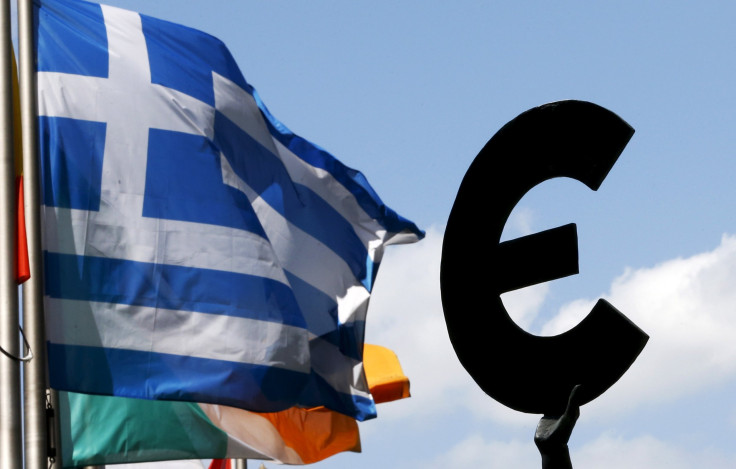Greek Debt Crisis: All Eyes On Decisive Eurozone Summit In Brussels As Greek Banks Run Out Of Cash

“The summit that will decide on the Grexit,” read the headline of a story published Tuesday in the Greek newspaper Kathimerini, underlining the importance of the emergency conference of eurozone leaders to be held in Brussels later in the day.
A hastily called meeting of the eurozone finance ministers is scheduled to begin ahead of a full summit of the leaders of the 19 euro nations at 5:00 p.m. local time (11:00 a.m. EDT). And though Greek Prime Minister Alexis Tsipras is widely expected to leverage his bailout referendum victory to secure a new deal with European leaders, as things stand now, a breakthrough on Tuesday is unlikely.
“We must try and find a solution. It can't be done today -- that would be too simplistic. Today we'll pave the way, through talks and mutual understanding, to put things in order,” European Commission President Jean-Claude Juncker said, early on Tuesday, reiterating the line that has now become a dictum among European leaders -- “the ball lies in the Greek government’s court.”
Although the Greeks rejected further austerity cuts as part of a tough new bailout deal -- voting “No” in a referendum on Sunday -- Greece is now even more desperate for cash than it was before the vote and is, therefore, in a much weaker negotiating position.
The government, which has defaulted on its $1.6 billion loan from the International Monetary Fund, has another payment due to the European Central Bank (ECB) coming up later this month -- one that it would find extremely difficult to meet unless a bailout deal is struck.
Get used to hearing this line on Greece, it's the only one going around, even if 48 hours old now: "They need to put forward proposals".
— Nicholas Vinocur (@NicholasVinocur) July 7, 2015While details of the proposals that Tsipras is likely to present during the summit are far from clear, some reports suggested that the reform plan would include a demand for Greece's debt to be cut by up to 30 percent. However, given that the ECB on Monday refused to increase assistance for beleaguered Greek banks and ordered them to provide more security for existing emergency loans, acceptance of such a proposal by eurozone leaders seems unlikely.
“I really hope that the Greek government -- if it wants to enter negotiations again -- will accept that the other 18 member states of the euro can't just go along with an unconditional haircut [debt write-off],” German Economy Minister Sigmar Gabriel reportedly said, late on Monday.
So, as things stand now, there are three potential outcomes: the Greek government persuades its creditors to agree to a revised deal and the lifting of capital controls on the country; or, negotiations fall apart prompting Greece to exit the eurozone; or, Greek banks, increasingly running out of funds, collapse and have to be rescued by the eurozone.
“The basics of an agreement, I am convinced, exist, and this agreement is necessary for Greece, because an exit from the eurozone would plunge its people into an intolerable situation, and it is necessary for the coherence of the eurozone, and so for Europe,” French Prime Minister Manuel Valls reportedly said, on Tuesday.
No matter what the outcome of the summit, this is definitely not the easiest moment in Greek history -- as the newly-sworn in finance minister Euclid Tsakalotos rightly pointed out.
© Copyright IBTimes 2024. All rights reserved.












